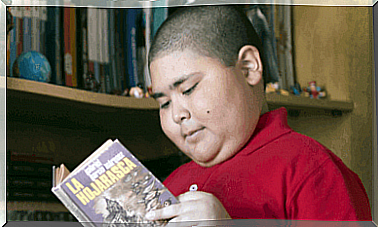How To Deal With Your Emotions Effectively

Emotions are the interplay between thoughts and physical experiences. Emotions cause fear in many people because they are not sure how to deal with them, and end up choosing alternative strategies instead, such as distracting themselves with other activities so as not to face the problem at hand.
Emotions are valuable and always offer something in return, but only if we are able to meet them effectively. Through them we can learn a lot about ourselves and our needs. They help us connect with others and achieve larger goals, such as learning to deal with stress. In return, we will always have a healthy immune system, we do not get sick so often, and we will maintain much healthier conditions.
How to identify your feelings?
To identify your feelings, you must first understand what you are feeling, and choose between the four basic emotions: anger, sadness, happiness and anxiety.
If you have thoughts about the future and about anything that could go wrong, along with physical sensations such as an increasing heart rate, tense muscles and a clenched jaw, you may want to ask yourself what you are afraid of. It is a feeling that is directly related to anxiety.
When you have negative thoughts about the past, and you have a general feeling of tiredness and exhaustion, with opportunities to cry and lack of concentration, you should probably ask yourself what you have lost. This is a feeling of sadness.
When it comes to thinking about yourself or when your values are attacked, along with physical experiences similar to anxiety, such as increasing heart rate and density in the body, ask yourself how you and your values have been attacked. This is a feeling that is directly related to anger.
When your mind is focused on how far you have come, and you have a sense of calm, and even experience feelings of joy and laughter, ask yourself what you have achieved. It is a feeling that is directly related to happiness.
How to deal with your emotions?
Once you have recognized and understood all of your emotions, as well as those of others, you need to consider the following aspects to better learn to deal with your emotions:
- Try to find out and understand the origin of the emotions, whether it is in yourself or others.
- Talk about your feelings and the other person’s; Do not try to negate or disprove them, and be direct about how you are feeling at the moment.
- Express your feelings in a non-confrontational way by using an effective form of communication and saying things like “I feel angry because…” instead of “you made me angry because…” express your feelings without accusing anyone, because if you choose the second phrase, you blame the other person and make your answer defensive and hostile.
- Recognize the other person’s feelings as legitimate, because they are as genuine and valid as your own. Also, it is a great way to free yourself from those emotions, so you can then focus on getting to the bottom of the problem.
- Do not react to emotional outbursts, and try to control your own emotions; You need to listen and understand the strength of the other person’s emotions, but do not react emotionally to your own, as it is very likely that there will be an escalation of emotions, and therefore another problem at hand.
- Try to be calm and if necessary, leave the room temporarily so that you can think, calm down and later plan an effective response, instead of reacting automatically, which can make the problem worse.
- Use symbolic gestures, such as apologies and even handshakes, as they can be very helpful in expressing respect and removing any negative emotions.
- In very emotional conflicts , you choose a conflict resolution mechanism that deals with emotions, such as dialogue processes.
Image courtesy of danielito311









